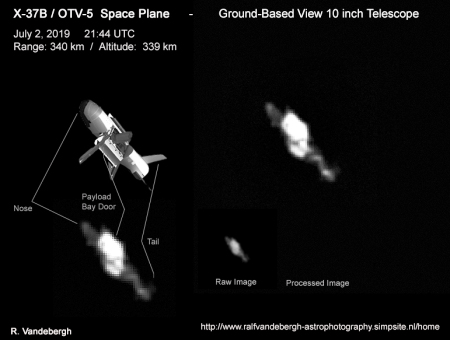NASA admits that 1st SLS launch likely to be delayed to 2021
In testimony yesterday at a House hearing NASA administrator Jim Bridenstine twice hinted that SLS’s first launch will not occur as scheduled in 2020, but will be delayed until 2021.
Twice during testimony before the US Senate Committee on Commerce, Science, and Transportation, Bridenstine referenced 2021 as the expected launch date for Artemis-1. “I think 2021 is definitely achievable for the Artemis-1 launch vehicle,” Bridenstine said in response to a question from Sen. Roger Wicker, the Mississippi Republican who chairs the committee.
However, Bridenstine said he would not set a new date for the mission yet.
Meanwhile, internal NASA sources say the launch can’t happen earlier than late 2021, and then only if the agency gets a lot more money, over and above the more than $25 billion that Congress has alocated.
Falcon Heavy was developed for $500 million. It took seven years, and is now operational, having flown three times. If the first launch of SLS does not occur until 2021 it will have taken NASA seventeen years to make that flight, for fifty times the money.
In testimony yesterday at a House hearing NASA administrator Jim Bridenstine twice hinted that SLS’s first launch will not occur as scheduled in 2020, but will be delayed until 2021.
Twice during testimony before the US Senate Committee on Commerce, Science, and Transportation, Bridenstine referenced 2021 as the expected launch date for Artemis-1. “I think 2021 is definitely achievable for the Artemis-1 launch vehicle,” Bridenstine said in response to a question from Sen. Roger Wicker, the Mississippi Republican who chairs the committee.
However, Bridenstine said he would not set a new date for the mission yet.
Meanwhile, internal NASA sources say the launch can’t happen earlier than late 2021, and then only if the agency gets a lot more money, over and above the more than $25 billion that Congress has alocated.
Falcon Heavy was developed for $500 million. It took seven years, and is now operational, having flown three times. If the first launch of SLS does not occur until 2021 it will have taken NASA seventeen years to make that flight, for fifty times the money.

